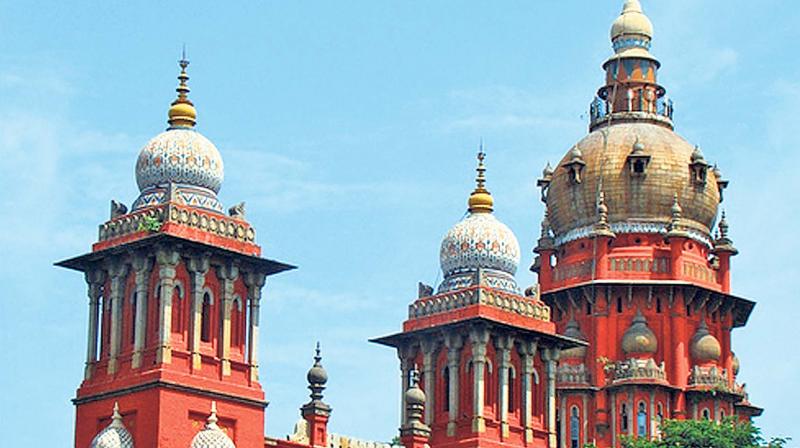Madras HC rejects PIL to fix common rates for veg and non-veg items in hotels
The bench said writ of mandamus (direction) cannot be issued merely because, a person was praying for.

Chennai: The Madras high court has dismissed a public interest litigation, which sought a direction to the state government to fix a common rate for vegetarian and non-vegetarian food items in hotels, restaurants, fast foods, dhaba and state hotels.
Dismissing the PIL filed by Y.Akbar Ahmed, a division bench comprising Justices S.Manikumar and P.T. Asha said, "Though, on the averments, we are of the view that the instant petition is a fit case to impose cost, we refrain from doing so with a hope that the petitioner would go through the judgments of the Supreme Court on public interest writ petitions and hereinafter, refrain from invoking the extraordinary jurisdiction of this court under Article 226 of the Constitution of India, except for genuine, bona fide cause, where there is public interest".
Contending that rates of the food items (vegetarian and non-vegetarian) in hotels and restaurants were different and therefore, the government should come forward with a regulation to fix a common rates for the food items in grade hotels such as Grade 2, 3, 4, 5 and 7 stat hotels and restaurants, the petitioner sent a representation to authorities. Since there was no response, he filed the present petition.
Citing various judgments of the Supreme Court on PILs, the bench said there was no constitutional or statutory right, to demand that there should be uniform rate of food items, (vegetarian and non-vegetarian) in different hotels, restaurants, fast foods and graded hotels. Representation can be entertained, if only there was a right. Averments made in the petition do not contemplate any answer, the bench added.
The bench said writ of mandamus (direction) cannot be issued merely because, a person was praying for. One must establish the right first and then he must seek for the prayer to enforce the said right. If there was failure of duty by the authorities or inaction, one can approach the court for a mandamus, the bench added.
The bench said a writ of mandamus can be issued by the court, in its discretion, for which, it must be shown that, there was a non-discretionary legal duty upon the authority against whom, the relief was sought for and that the person approaching the high court under Article 226 of the Constitution of India, has to prove that he has a legal right to be enforced against the authority and for the failure of performance of a legal or statutory duty, by the authority against whom, the relief was sought for.

